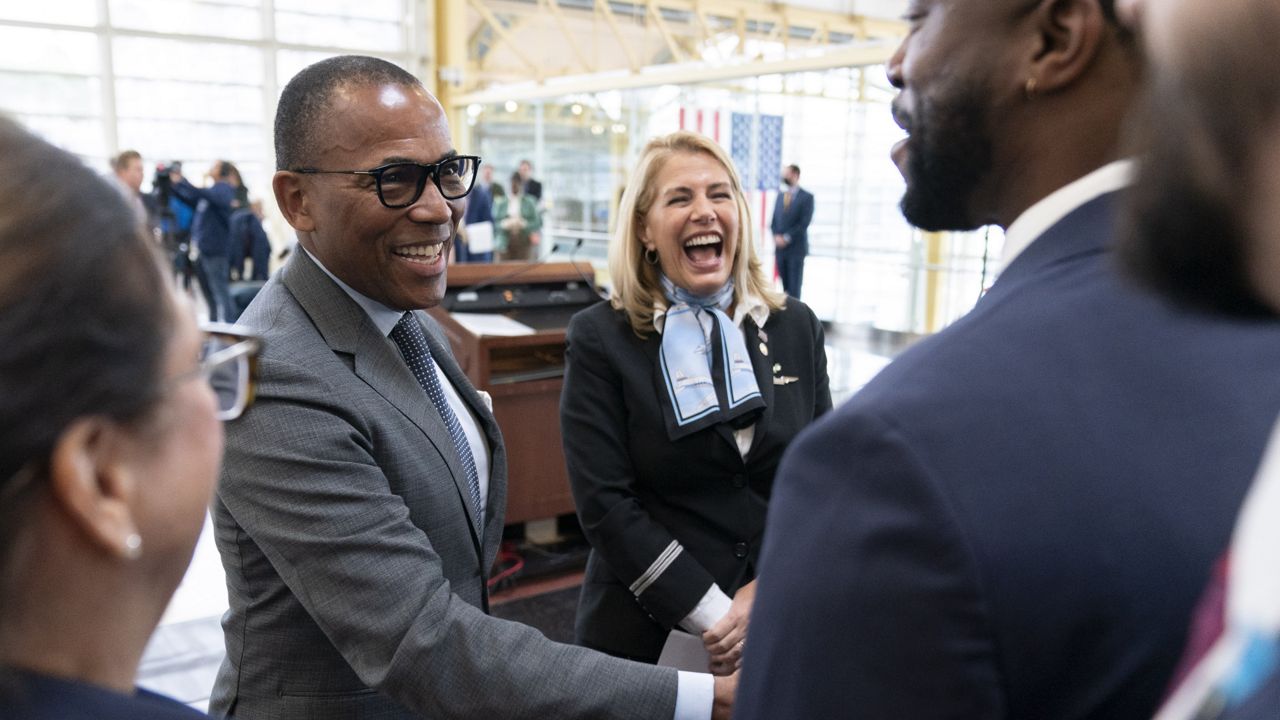The Federal Aviation Administration on Tuesday announced a new final rule that requires flight attendants rest longer between their shifts, increasing the break from nine to 10 consecutive hours.
The rule, which will go into effect 30 days after being published in the Federal Register, applies to attendants working a shift of 14 hours or less on any domestic, flag, or supplemental operation, per the FAA. It also eliminates a provision that reduced the rest period under certain circumstances.
Previously, flight attendants’ rest time could be reduced to eight consecutive hours if they were then scheduled a subsequent rest period of at least 10 hours beginning 24 hours after the initial reduced rest period.
“Earlier this morning, I signed the paperwork and, the ink may be drying still, that increases rest periods for flight attendants to 10 consecutive hours. No exceptions,” said acting FAA administrator Billy Nolen at a Tuesday morning event announcing the change, later adding: “I am a pilot. Any pilot will tell you that we cannot fly the plane without the safety expertise and support of flight attendants.”
The change was the result of a 2018 mandate from Congress in the FAA Reauthorization Act, which – in addition to including the modernization of rest periods for flight attendants – directed the agency to address aircraft noise, promote U.S. aerospace standards around the globe and to create airport capital development projects, among other issues.
Sara Nelson, the international president of the Association of Flight Attendants-CWA International, applauded the rule change during Tuesday’s press conference, detailing the decades of work that went into ensuring flight attendants are sufficiently rested and not fatigued while performing their duties.
“This started in the late ‘80s, as flight attendants were identifying the problems with fatigue, the problems with not enough rest,” Nelson said in part.
In the years since, many reports have shown both that flight cabin crews work, at least on occasion, while fatigued and separately that prolonged fatigue can lead to poor health outcomes.
Flight attendants frequently work hours that lead to sleep loss and disrupt their circadian rhythms, which can lead to “cumulative and progressive performance decrements, even in healthy adults,” per a 2009 report from the FAA.
While performance deficiencies might be problematic in any job, it is of particular concern for flight attendants, who are not only responsible for the comfort and safety of passengers, but must also respond in case of any life-threatening event, which can range from turbulent air to decompression issues to hijacking.
Flight attendants must also be responsible for unruly passengers, an issue exacerbated by the COVID-19 pandemic.
“This was time to happen,” Nelson said of the rule change on Tuesday, adding: “Especially on the heels of coronavirus and all the flight attendants have had to deal with – longer days, shorter nights, with the reduction in schedules throughout this pandemic and also all of the combative passengers that they have had to face on not enough rest – today that is getting corrected and we are going to see by the New Year this implemented across the industry.”
Nelson also joined transportation secretary Pete Buttigieg for an Instagram Live event following Tuesday’s announcement, where the two further discussed the impact of the rule change in light of the coronavirus pandemic. Last year saw the highest number of FAA investigations initiated into unruly passengers since 1995 at 1,099; before that, the record amount of unruly passenger investigations was 310 in 2004.
The FAA has initiated 680 such investigations so far this year.
Nelson told Buttigieg the timing of Tuesday’s rule change is especially important as flight crews have “had more conflict on our planes than ever before, adding: “I don't think anyone would like to go into a situation where you're trying to de-escalate conflict and you can't even think yourself because you're so fatigued.”
The rule goes into effect after 30 days, and the industry must become compliant within 90 days after publication, meaning flight attendants will likely feel the impact of the increased rest period at the start of 2023.
“I've never seen a department tell the airlines that they have to implement something in 90 days. But that's the case here,” Nelson told Sec. Buttigieg. “And they've had plenty of warning for this so they can get it done.”



